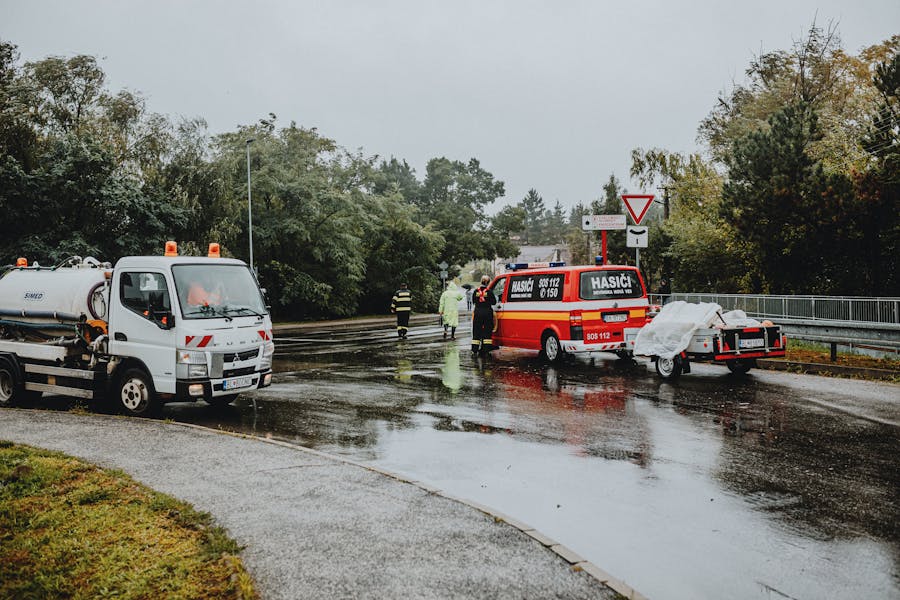Road trips can be a thrilling way to explore new places and enjoy the great outdoors. Despite the joy of travel, accidents can happen unexpectedly. Navigating through the aftermath of a road trip accident requires composure and knowledge of the proper steps to take. Understanding how to respond effectively ensures your safety and the safety of others involved, and it can make a significant difference when dealing with insurance companies and potential legal matters.
Stay Calm and Assess the Situation
In the immediate aftermath of an accident, it’s natural to feel panic or distress. The first step is to take a deep breath, remain calm, and assess the scene. Check yourself and your passengers for injuries. If possible, move to a safe area away from oncoming traffic on busy highways.
Ensure all vehicles involved are pulled over to the side of the road or to a safe location. Prioritize safety. If someone is unconscious or seriously injured, calling 911 should be your immediate priority, as emergency responders can provide medical assistance.
Call Emergency Services
It’s crucial to call emergency services after an accident, regardless of how minor it seems. Police will come to document the situation, creating an official report that can be important for insurance claims. When communicating with the dispatcher, provide clear information about your location and the nature of the accident.
If injuries are present, be explicit about them so that appropriate medical personnel can be dispatched quickly. In many regions, having an official police report for your case can significantly impact the outcome of subsequent claims.
Document the Scene
Once safety is ensured and emergency services have been notified, take the time to document everything related to the accident. Use your smartphone to take photographs of the vehicles involved, the surroundings, any visible injuries, and street signs indicating the location of the incident.
Having this visual evidence can be invaluable when filing insurance claims or seeking legal advice later. Make sure to collect other parties’ information, including names, contact numbers, license plate numbers, vehicle details, and insurance information. This documentation helps create a comprehensive account of what transpired.
Contact Your Insurance Provider
After ensuring everyone’s safety and obtaining documentation, the next step is to contact your insurance provider as soon as possible. They will guide you through the claims process, which will involve submitting the documentation gathered and providing a statement about the accident. Be honest and thorough when discussing the incident with your insurance agent to avoid issues later.
Your insurer may require you to provide a written or recorded statement, so it helps to be prepared with all pertinent details explained clearly. Keep records of all communications to ensure that both you and your insurer are on the same page.
Know Your Rights
During the process of dealing with the aftermath of an accident, understanding your legal rights is key. If the accident resulted from another party’s negligence, you may be entitled to compensation for medical expenses, lost wages, and other damages. Consulting with a lawyer who specializes in personal injury or automobile accidents can provide you with guidance tailored specifically to your case. An experienced attorney can help protect your rights and navigate the often-complex legal landscape. Understanding state laws and insurance regulations in your area is beneficial, as they can vary significantly from one jurisdiction to another.
Follow Up with Medical Care
Even if you feel fine immediately after an accident, it’s wise to follow up with medical care. Injuries from car accidents can sometimes manifest later, leading to complications if left untreated. Personal injuries like whiplash or concussions may not become apparent until days or even weeks after the accident. Establishing a medical record is critical for your well-being and serves as documentation for any potential insurance claims or legal proceedings. Visit a healthcare professional to discuss your condition fully and receive guidance on any necessary follow-up treatments.
Maintain Records and Keep Communication Open
Staying organized throughout the process is essential. Keep copies of reports, medical records, and all correspondence with insurance companies and attorneys. Clear communication helps maintain transparency, prevents missed deadlines, and strengthens your case.
While road trips are an enjoyable experience, knowing how to respond effectively to accidents can ensure safety and protect your rights. By staying calm, documenting the scene, understanding your legal entitlements, and maintaining open communication, you can successfully navigate the challenges that arise from unexpected road trip accidents. Always consult professionals when uncertainty arises to ensure the best possible support during a stressful time.
William Gall is a seasoned attorney specializing in civil litigation and family law. With a legal career spanning over two decades, William has built a reputation for his meticulous attention to detail and his unwavering commitment to justice. In addition to practicing law, he is a prolific writer, contributing regularly to various legal blogs where he shares his insights on current legal trends, case law, and best practices. His articles are well-regarded in the legal community for their thorough research and practical advice, making complex legal concepts accessible to both legal professionals and the general public.


